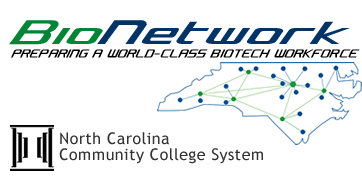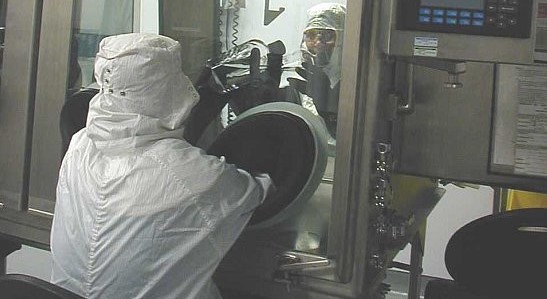North Carolina's biotechnology industry is a success story, built on 30 years of steady support for its development. It is ranked as the third-largest cluster of biotech, pharma and life sciences companies in the U.S., following only California and Massachusetts. It generates almost $60 billion a year. But in the early 2000's, biomanufacturing and biopharmaceutical companies in the state were facing difficulties. The state's capability to train sufficient numbers of workers with the specialized skills and knowledge needed to work in complex, highly-regulated biopharmaceutical manufacturing environments was limited. Companies were poaching each other's workers, driving up the cost of business and limiting the companies' ability to expand. This also negatively impacted companies that had a patent clock ticking down. These workforce challenges were costing billions. The post below outlines how the team at Coherent Marketing played a key role in addressing this challenge and helping North Carolina to grow its economy.
 In 2003, North Carolina used a $76 million Golden LEAF grant to fund a workforce development program and the BPTC - short for the Biomanufacturing and Pharmaceutical Training Consortium - began work. It comprised an ambitious partnership between the North Carolina Community College System and the North Carolina University System that included:
In 2003, North Carolina used a $76 million Golden LEAF grant to fund a workforce development program and the BPTC - short for the Biomanufacturing and Pharmaceutical Training Consortium - began work. It comprised an ambitious partnership between the North Carolina Community College System and the North Carolina University System that included:
- A shared commercial-scale training facility on the North Carolina State University's Centennial Campus in Raleigh called BTEC
- Graduate and undergraduate pharmaceutical sciences degree programs at a specialized center called BRITE at North Carolina Central University
- BioNetwork - a statewide community college initiative comprised of biotech, pharmaceutical and life science growth sector centers, specialized laboratories for hands-on training and shared curricula, all focused on spreading bioprocessing, pharmaceutical and life science training and education across North Carolina.
The BPTC also partnered closely with industry to ensure workforce training actually matched needs.
Two of the senior staff at Coherent Marketing, Susan Seymour and Norman Smit, led the community college initiative, called BioNetwork. With over 70% of the workers and technicians needed by industry requiring specialized community college-level training, BioNetwork played a critical role in addressing the state's bioprocessing, pharmaceutical and life science workforce shortage. Susan Seymour, the BioNetwork founding director, developed partnerships with top biopharma industry leaders who provided critically important input, resources, and validation of new and enhanced specialized training and educational programs. Programs included specialized laboratories designed to provide hands-on training for the industry to succeed and continue to expand across North Carolina. By 2007, in just three years, a report to the BioNetwork Industry Advisory Board showed that, the following metrics had been achieved:
staff at Coherent Marketing, Susan Seymour and Norman Smit, led the community college initiative, called BioNetwork. With over 70% of the workers and technicians needed by industry requiring specialized community college-level training, BioNetwork played a critical role in addressing the state's bioprocessing, pharmaceutical and life science workforce shortage. Susan Seymour, the BioNetwork founding director, developed partnerships with top biopharma industry leaders who provided critically important input, resources, and validation of new and enhanced specialized training and educational programs. Programs included specialized laboratories designed to provide hands-on training for the industry to succeed and continue to expand across North Carolina. By 2007, in just three years, a report to the BioNetwork Industry Advisory Board showed that, the following metrics had been achieved:
- Student numbers had risen to 4,200
- Approval for biotech-related programs statewide had gone from 6 to 21
- Community colleges offering the 128-hour biotech short course, BioWork, had increased from six to 13 colleges
- Articulation agreements were in place between high schools and community colleges, and between community colleges and university four-year degrees, like the one offered at BRITE
- Traffic to the BioNetwork website was averaging 15,000+ visits and 44,300+ pageviews a month
What made this entire initiative transformative was the strategic role that highly effective marketing played of this workforce development approach. Early on, Norman Smit recognized that if workforce shortfalls were keeping biomanufacturing CEOs and Operations Managers awake at night, then marketing that targeted the specialized workforce solutions to industry could give North Carolina a strategic advantage in attracting biomanufacturing to the state. He then developed a national and international marketing strategy to get the word out about North Carolina's commitment to developing a highly competent workforce pipeline. Implementing the plan acted as a tremendous economic development catalyst for North Carolina to attract new and expanding bioprocessing, pharmaceutical and life science business, which in turn created thousands of new, high-wage jobs.
As community college programs developed, marketing for student recruiting was carefully developed to underscore, support and provide authenticity to marketing to industry outside of North Carolina and the U.S.



Results were impressive. In Norman Smit's role as chairman of the BPTC's marketing committee, which comprised BioNetwork, BTEC, BRITE, NC BIO, the NC Department of Commerce, and the Biotechnology Center, a marketing plan was developed and implemented to promote the state's workforce programs internationally. After rebranding the BPTC as NC BioImpact, the team was rewarded quickly with a spurt of growth by industry responding with expansions to existing facilities or new investment. By 2007, the estimated investment and jobs numbers were already looking like this:
- Glaxo Smith Kline $92 million and 200 new jobs
- Merck $300 million and 200 jobs
- Stiefel $50 million and 200 jobs
- Talecris $ 127 million and 150 jobs
- Novo Nordisk $100 million and 80 jobs
- Novartis $400 million and 400 jobs
By that three-year mark in 2007, the integrated marketing campaign developed by the Coherent Marketing team saw BioNetwork receiving national acclaim and being invited to present at conferences such as BIO International. The website was attracting an average of 15,000 unique visitors and more than 44,300 page views a month, a massive number for a state specialized workforce training website, with a significant amount of that traffic coming from states and countries seeking to develop insight into the North Carolina success story.
In the 10 years since then, Seymour and Smit have continued the solid track record of success in developing workforce-related and economic development marketing that works. The Coherent Marketing team has played a key role in the following initiatives:
- Directed a state workforce aerospace needs assessment
- Consulted with government and education leaders in Thailand, Northern Ireland and Australia
- Started the Biofuels Center to develop a long-term statewide biofuels industry sector
- Providing strategic communications services to the Advanced Manufacturing Alliance, an $18 million DOL ETA grant
- Designed and helped launch the BioNetwork Validation Academy in a partnership with the International Society of Pharmaceutical Engineers (ISPE)
- Rebranded the region south of Raleigh, Triangle Southeast, to attract increased investment in that area
Connecting key stakeholders in industry, government, education and helping them to develop and implement strategic plans for sectors requiring specialized technical training such as industrial biotechnology, aerospace, advanced manufacturing, renewable energy and biofuels, and other regulated sectors is something Coherent Marketing has successfully accomplished multiple times. We have succeeded in leveraging the implementation of those plans for economic recruitment and success. We understand the challenges inherent in getting diverse parties - often with competing agendas - to work together to develop and implement common goals that can set their region or country on the path to improved economic outcomes as a result of strategic workforce development.
Contact us to discuss how we can help you.

Subscribe